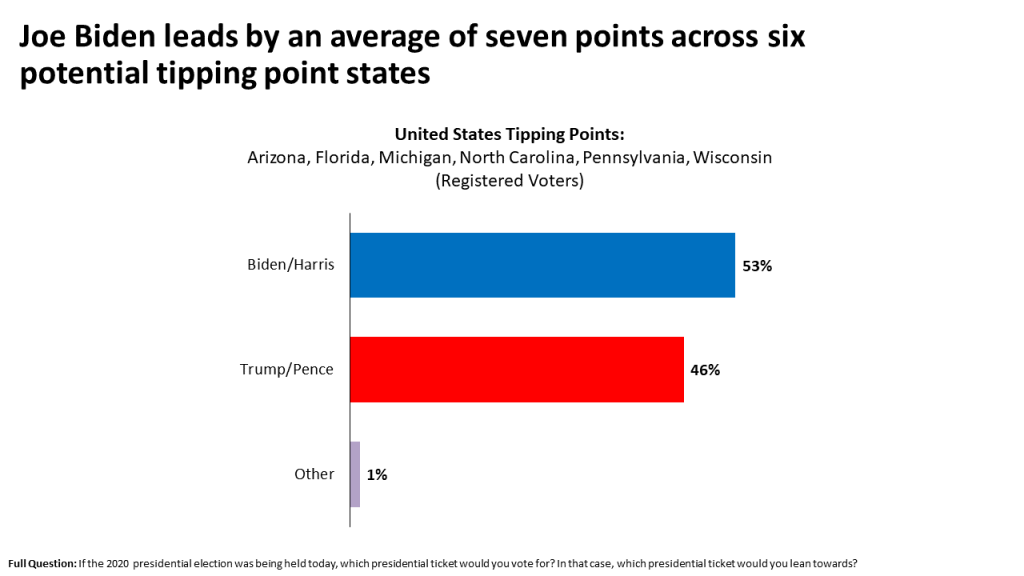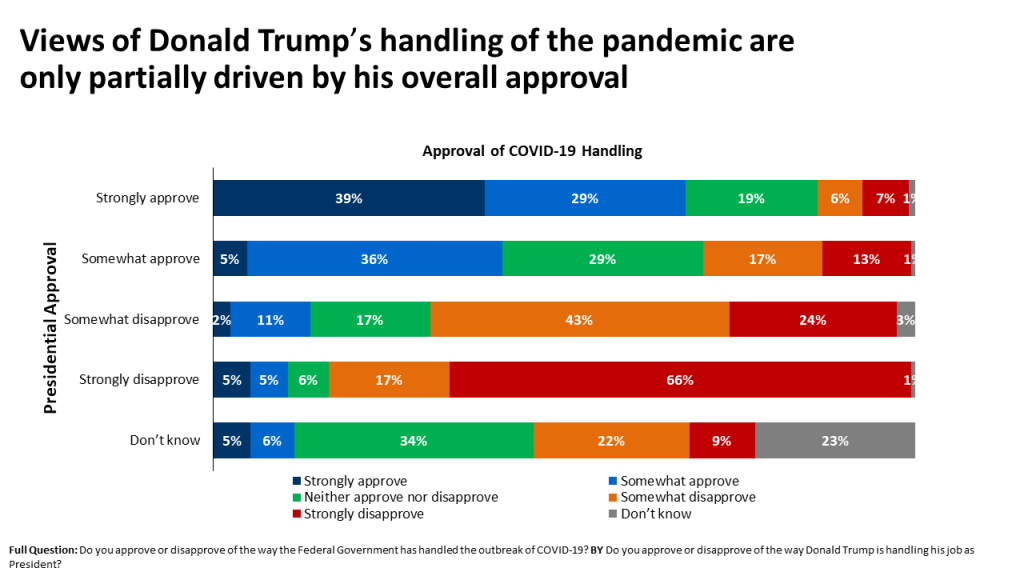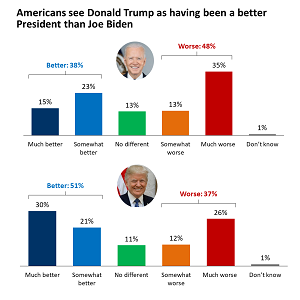
The 2020 US Presidential Election is a referendum on Donald Trump, and he is losing.
Our online survey of 2,435 registered voters shows Donald Trump is trailing Joe Biden by 5 percentage points across the country as a whole.
In both the US and Canada, winning the popular vote does not translate directly into winning the election. In Canada, we count votes within parliamentary districts. Parties can win a majority of districts and form a majority government with 40% or less of the popular vote. In the US, they count electoral college votes. The rules on how those votes are assigned are decided at the state level. Some states are reliably Democrat while others are reliably Republican. But others switch from one election to the others. The states that tend to provide the margin of victory for Presidents are called tipping point states. INNOVATIVE’s survey polled 200 voters in each of 6 tipping point states – Arizona, Florida, Michigan, North Carolina, Pennsylvania, and Wisconsin.
In 2016, Trump was able to win enough tight races in key states to win the electoral college, despite losing the popular votes. He is not doing so at this point in the race. Trump trails Biden by 7 percentage points in the states most likely to be the electoral college tipping point this time around.

The number one driver of Trump support is his job approval. And from a Canadian perspective, Trump is doing quite well on that measure – almost half of American (46%) approve of the way Donald Trump is handling his job.
A key factor pulling Trump down is the federal government’s performance on COVID-19. Just 32% approve of the government’s handling of the COVID-19 outbreak. A key issue here is that 13% of the people who strongly approve of Trump’s overall performance disapprove of the government’s handling of COVID-19. And COVID disapproval rises to 3-in-10 (30%) among those who somewhat approve of Trump’s overall performance. Trump may survive COVID as a personal health challenge, but it may be more damaging to his political chances.

Underpinning this referendum on Trump is the US culture war. Values have limited direct impact on the vote. But they frame how Americans perceive Trump and their party allegiances. Where people stand on values such as social conservatism, immigration, discrimination and hunting tell us a lot about what parties American’s identify with and how they view the President.
The election is not over. It takes just 1-in-10 Biden voters to change their minds for the race to flip. But Biden’s support appears better distributed than Clinton’s four years ago, leaving Biden in a stronger position at this point in the race.
For more information and detailed insights, read the full report here.
Methodology: Results for this study come from two online surveys of American registered voters and Canadian eligible voters. Both surveys were in field from September 29, 2020 to October 6, 2020. The American survey has a total weighted sample size of 1,000; the sample was weighted by age, gender, region, education, race, and urban/rural. The Canadian survey has a total weighted sample size of 1,500; the sample was weighted by age, gender, and region. See the full report for detailed methodology.


































